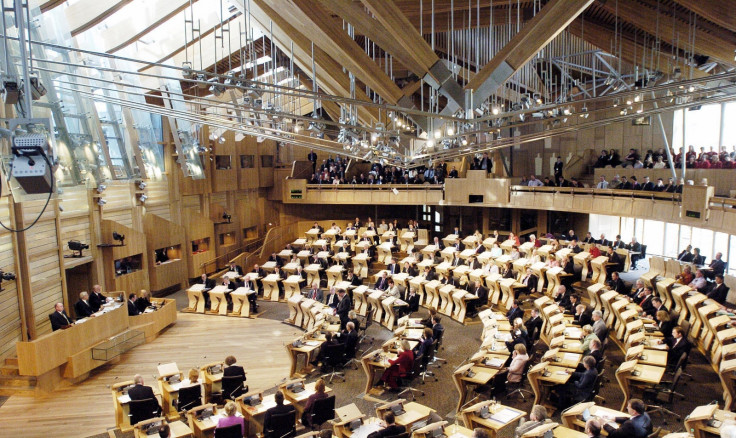Smith Commission: Give Scottish Parliament 'Substantial' Welfare and Income Tax Powers

Scotland should have control over a "substantial" package of welfare powers, according to the Smith Commission.
The report, on devolving powers from Westminster to Holyrood, recommended that the Scottish Parliament should have powers to create new benefits in areas of devolved responsibility as well as full control over income tax rates and bands.
The commission, led by Lord Smith of Kelvin in the wake of the Scottish independence referendum, also said that legislators north of the border should have powers over support for unemployed people through the employment programmes currently contracted by the Department for Work and Pensions (DWP).
"This agreement is, in itself, an unprecedented achievement," Smith said.
"It demanded compromise from all of the parties.
"In some cases that meant moving to devolve greater powers than they had previously committed to, while for other parties it meant accepting the outcome would fall short of their ultimate ambitions.
"It shows that, however difficult, our political leaders can come together, work together, and reach agreement with one another.
"The recommendations are explicitly designed to create a coherent set of powers that strengthen the Scottish Parliament's ability to pursue its own vision, goals and objectives, whatever they might be at any particular time."
The agreement will result in the biggest transfer of power to the Scottish Parliament since its establishment.
But the report said that the government's flagship welfare reform, Universal Credit (UC), will remain a reserved benefit administered and delivered by the DWP.
However, the Scottish Government will be given the administrative power to change the frequency of UC payments, vary the existing plans for single household payments, and pay landlords direct for housing costs in Scotland.
In addition, Holyrood will have the power to vary the housing cost elements of UC, including varying the under-occupancy charge and local housing allowance rates, eligible rent, and deductions for non-dependents.
Westminster will also remain in charge of the National Minimum Wage (NMW) and have responsibility over major social security areas like child benefit, maternity allowance and statutory sick pay.
The Scottish National Party (SNP), the ruling party in Holyrood, welcomed the new powers but argued that the Smith Commission did not go far enough.
"The proposals clearly do not reflect the full wishes of the people of Scotland, and also fall far short of the rhetoric from the No campaign during the referendum," said John Swinney, the deputy first minister of Scotland.
"Then, Gordon Brown promised 'nothing less than a modern form of Scottish Home Rule' and 'as close to a federal state' as the UK can be. That was the context for the "extensive new powers" promised in the Vow.
"Regrettably, the Westminster parties were not prepared to deliver the powerhouse parliament the people of Scotland were promised – under these proposals, less than 30% of our taxes will be set in Scotland and less than 20% of welfare spending will be devolved to Scotland. That isn't Home Rule – it's continued Westminster rule."
© Copyright IBTimes 2025. All rights reserved.





















